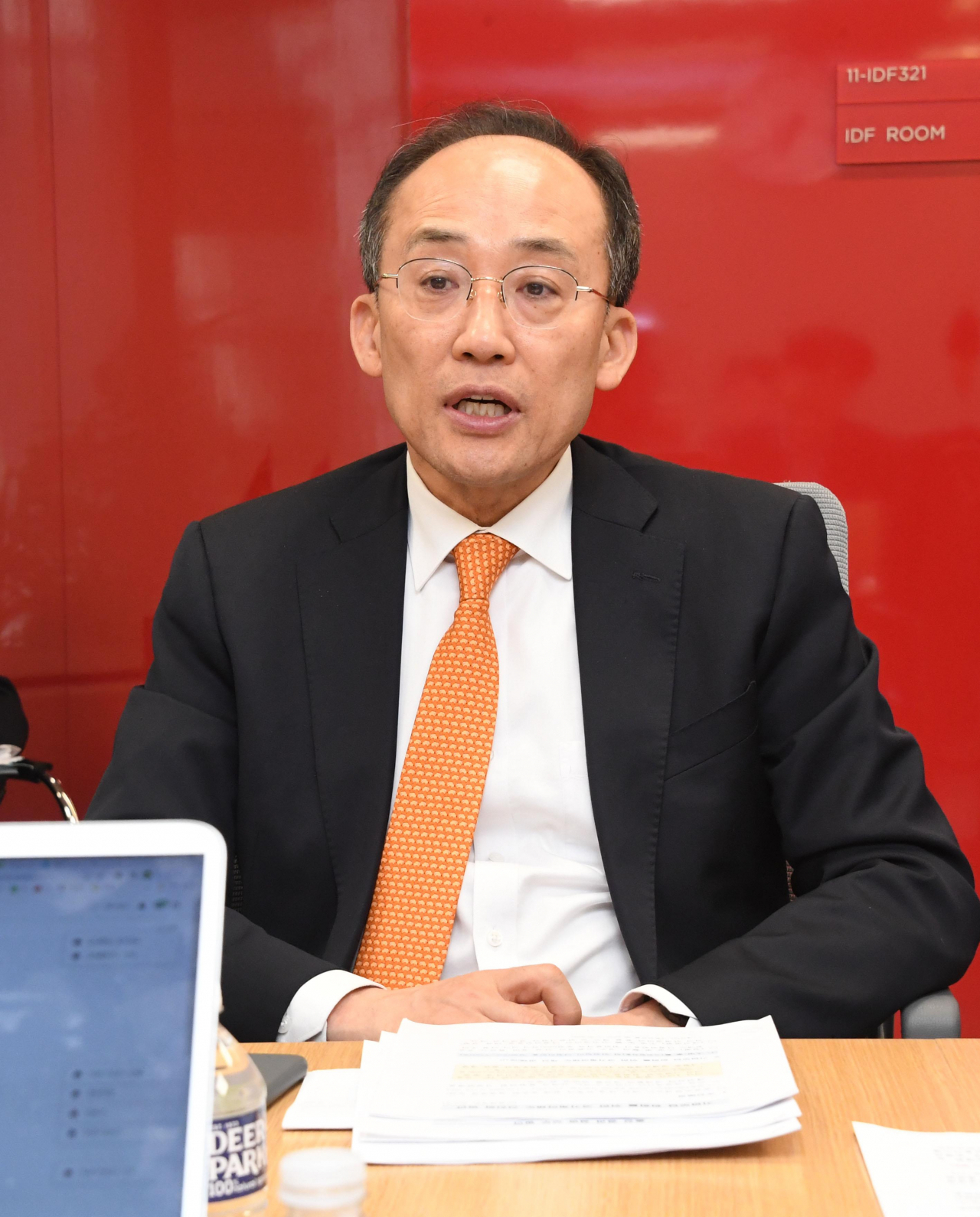
South Korea was not considering planning a supplementary budget, its finance minister has said, despite a looming decline in this year's tax income.
"We are not mulling a supplementary budget at this point," Finance Minister Choo Kyung-ho said during a meeting with reporters in Washington on Thursday (U.S. time), where he attended the G20 Finance Ministers and Central Bank Governors' meeting.
The comment came as South Korea's tax income declined 15.7 trillion won ($12 billion) as of February from a year ago amid a slow economy, and this year's tax income is feared to fall short of the government's estimate of 400.5 trillion won.
There is speculation the South Korean government could propose an extra budget to reinvigorate the economy and boost sagging demand, as spending is forecast to outstrip tax income this year for the first time in four years.
Some suggest that the government should remove its temporary measures to support fuel tax, individual consumption tax and real estate tax, among others.
Tax income is "far from enough for the first half of this year," the minister said, adding, "We need to monitor a bit longer how things will turn out for this year."
"Aside from financial conditions, there is people's livelihood that we need to pay attention to," he said, implying that the government will try not to give financial burden to the people by hastily raising taxes. "We will make a decision in a comprehensive manner."
The government will decide this week whether to extend its fuel tax reduction policy, scheduled to end this month, and it will also discuss whether to raise real estate taxes.
On energy costs, Choo said, "We will determine within this month" if or when the government adjusts utility bills such as electricity and gas.
The previous Moon Jae-in government drew up supplementary budgets 10 times from 2017 to 2022, totaling around 151 trillion won. (Yonhap)



![[AtoZ into Korean mind] Humor in Korea: Navigating the line between what's funny and not](http://res.heraldm.com/phpwas/restmb_idxmake.php?idx=644&simg=/content/image/2024/04/22/20240422050642_0.jpg&u=)
![[Exclusive] Korean military set to ban iPhones over 'security' concerns](http://res.heraldm.com/phpwas/restmb_idxmake.php?idx=644&simg=/content/image/2024/04/23/20240423050599_0.jpg&u=20240423183955)



![[Graphic News] 77% of young Koreans still financially dependent](http://res.heraldm.com/phpwas/restmb_idxmake.php?idx=644&simg=/content/image/2024/04/22/20240422050762_0.gif&u=)
![[Herald Interview] Why Toss invited hackers to penetrate its system](http://res.heraldm.com/phpwas/restmb_idxmake.php?idx=644&simg=/content/image/2024/04/22/20240422050569_0.jpg&u=20240422150649)






![[Exclusive] Korean military to ban iPhones over security issues](http://res.heraldm.com/phpwas/restmb_idxmake.php?idx=652&simg=/content/image/2024/04/23/20240423050599_0.jpg&u=20240423183955)



![[Today’s K-pop] Ateez confirms US tour details](http://res.heraldm.com/phpwas/restmb_idxmake.php?idx=642&simg=/content/image/2024/04/23/20240423050700_0.jpg&u=)